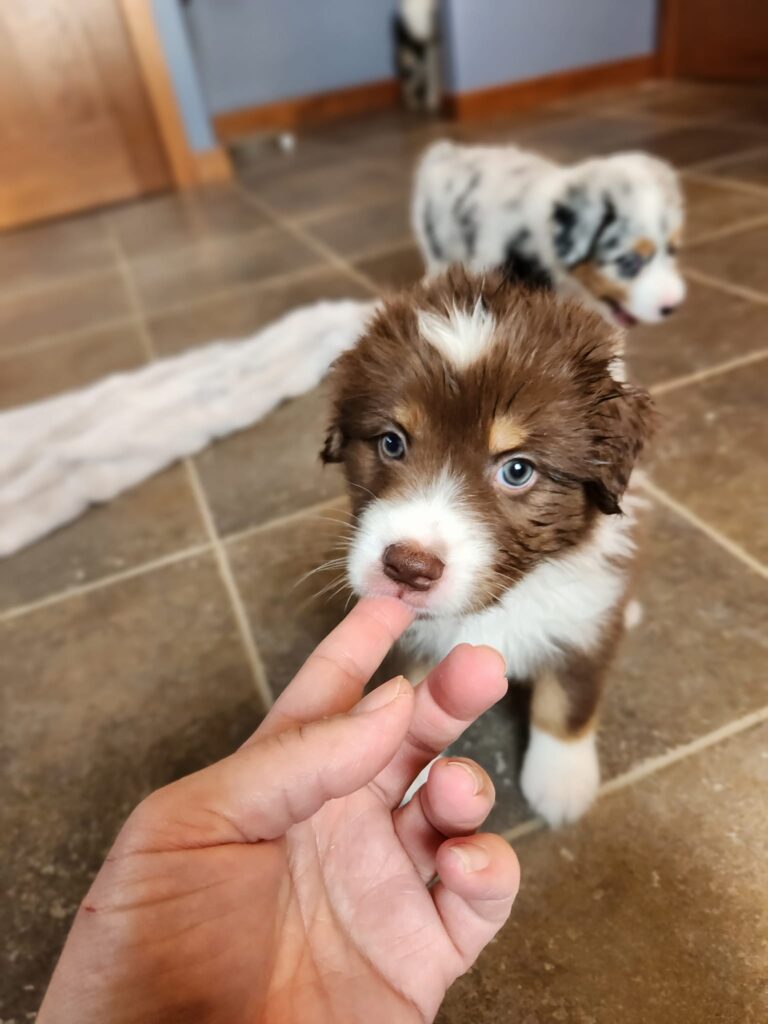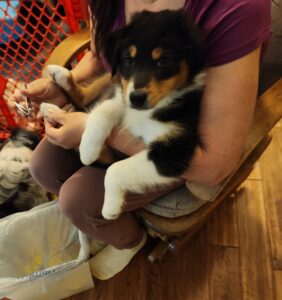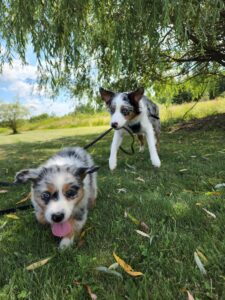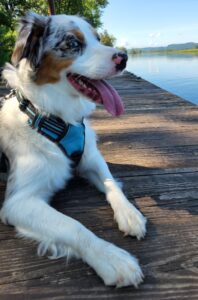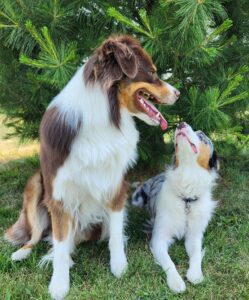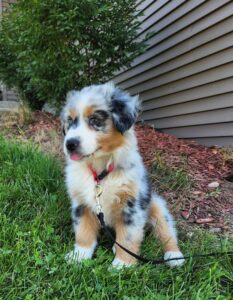Teaching a soft mouth in your puppy is an important aspect of their early training, especially for breeds that do not naturally possess this trait. Training a soft mouth through bite inhibition techniques lays the foundation for healthy interaction and play. While some breeds, like retrievers, may exhibit naturally soft mouths and seldom bite down hard during play, it is essential to instill this behavior in all puppies regardless of breed. By focusing on teaching your puppy a soft mouth, you can prevent accidental injuries and promote positive socialization experiences.
Using Natural Cues for Bite Inhibition
During play, puppies learn bite inhibition through interactions with their littermates. When a puppy bites too hard, the bitten littermate yelps, signaling the end of play. This teaches puppies that biting too hard results in the cessation of enjoyable activities.
Training Techniques
To encourage a soft mouth in your puppy, mimic the natural cues of their littermates. When your puppy bites too hard during play, say “Ouch” loudly and stop the play for a few seconds. This should startle the puppy and signals that the bite was too rough. After the pause, resume play and reinforce gentle biting by saying “Gentle.” Repeat this process consistently during play sessions to reinforce the message. Puppies quickly learn to adjust the pressure of their bites to maintain the interaction.
Redirecting Play
Encourage rough-playing puppies to use toys rather than hands, arms, or clothing as playthings. Tug-of-war toys can be particularly effective in redirecting their biting behavior towards appropriate objects. Consistent training and patience are key to teaching a puppy to play gently. With time and reinforcement, puppies will learn to moderate their bite strength and understand that humans are not toys.
The Importance of Bite Inhibition
Training a puppy in bite inhibition is crucial, as it teaches them to control the force of their bite. A dog with a soft mouth is less likely to cause harm, even in moments of fear or pain, compared to a dog that has not been trained in bite inhibition.
Supplemental Training Methods
In addition to vocal cues and redirection, there are other methods to reinforce bite inhibition in puppies. Providing chew toys specifically designed for teething puppies (toys that can be frozen work well and they soothe puppies gums) help satisfy their natural urge to chew while encouraging appropriate chewing behaviors. Additionally, incorporating obedience training sessions into playtime can reinforce the “gentle” command and further reinforce bite inhibition.
Socialization and Bite Inhibition
Socialization with other dogs and humans is essential for puppies to develop proper bite inhibition. Regular interactions with well-behaved adult dogs can teach puppies appropriate play behaviors and reinforce bite inhibition through natural feedback mechanisms. Similarly, supervised play sessions with children can help puppies learn to control the force of their bites and interact gently.
Conclusion
By employing positive reinforcement techniques, consistent training, and proper socialization, you can effectively teach your puppy to have a soft mouth and engage in gentle play. Encouraging appropriate chewing behaviors and redirecting rough play towards toys will help foster a strong bond between you and your furry companion while preventing accidental injuries during playtime.

